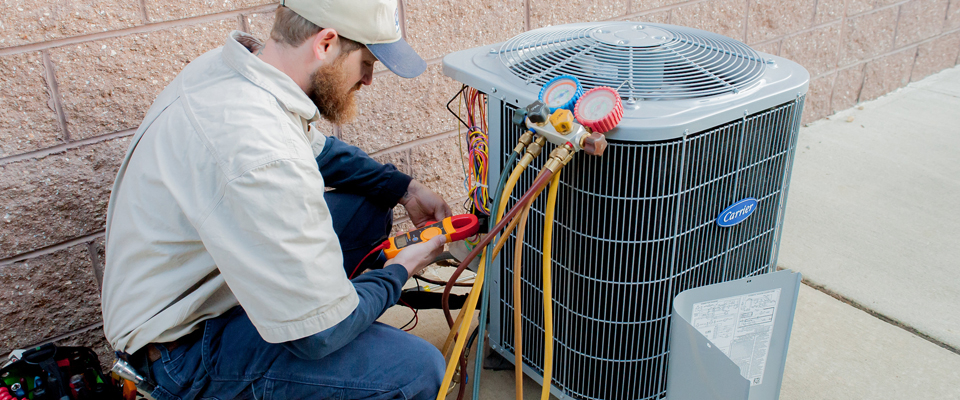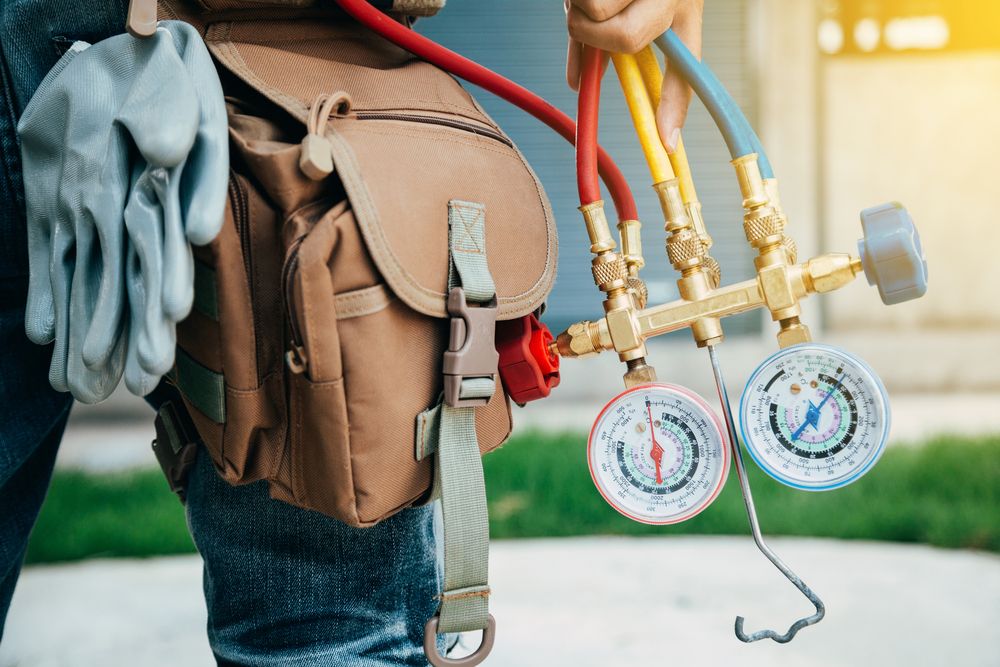Professional Duct Cleaning Services Offered by DMAKS HVAC Specialists.
Wiki Article
Energy-Efficient HVAC Systems to Save on Utility Bills
As power prices proceed to climb, the significance of energy-efficient heating and cooling systems ends up being progressively obvious. These systems not only assure significant cost savings on utility bills but likewise contribute to a more lasting future by minimizing energy consumption. With various alternatives readily available, consisting of geothermal heat pumps and ductless mini-splits, property proprietors encounter a wide variety of options that can boost convenience and air high quality. Recognizing the key attributes and upkeep needs is crucial to maximizing these advantages. What factors should be focused on when choosing the best system for your requirements?Benefits of Energy-Efficient Heating And Cooling Equipments
Energy-efficient a/c systems use countless benefits that extend past mere cost savings. One substantial benefit is the reduced environmental effect. By eating less energy, these systems add to lower greenhouse gas exhausts, aiding to deal with climate adjustment and advertise sustainability. This lines up with boosting social demands for green techniques in property and business setups.Additionally, energy-efficient a/c systems frequently offer improved comfort levels. A lot of these systems include innovative modern technology that enables for much better temperature level control and enhanced air high quality (DMAKS HVAC). This results in a much healthier interior setting, which is specifically vital for people with allergies or respiratory system concerns
In addition, spending in energy-efficient a/c systems can boost property value. As even more consumers focus on energy effectiveness, homes and structures outfitted with these systems may draw in greater bids in the real estate market.
Sorts Of Energy-Efficient HVAC Options
How can home owners and organizations pick one of the most suitable energy-efficient heating and cooling options for their demands? The market provides a range of energy-efficient heating and cooling systems, each developed to enhance convenience while reducing power consumption.One alternative is the variable refrigerant circulation (VRF) system, which efficiently manages the temperature in numerous zones within a structure. This system adapts its cooling agent flow to match the desired temperature level, causing considerable power financial savings.
One more popular selection is geothermal heatpump, which make use of the planet's stable temperature level to heat and cool rooms. By transferring warmth to and from the ground, these systems demonstrate impressive efficiency, specifically in moderate environments.
Additionally, ductless mini-split systems supply an energy-efficient alternative for homes lacking ductwork. These systems enable zone-specific cooling and heating, lowering power waste in unoccupied locations.
Lastly, high-efficiency heating systems and air conditioning unit, with innovative SEER and AFUE ratings, offer trustworthy environment control while taking in much less power than typical models. By assessing these alternatives, homeowners and services can select an a/c system customized to their specific needs and energy effectiveness goals.
Key Functions to Take Into Consideration

Next, examine the kind of compressor utilized in the system. DMAKS HVAC. Variable-speed compressors can adjust their outcome to match the home heating or cooling demand, bring about improved convenience and energy cost savings compared to single-speed models. Furthermore, look for systems furnished with clever thermostats that use programmable setups and remote gain access to, enabling better control over energy usage
One more important attribute is the system's air purification ability. High-efficiency filters can improve indoor air quality and decrease energy usage by guaranteeing the system operates effectively. In addition, consider the type of refrigerant utilized; modern systems typically utilize environment-friendly refrigerants that have a reduced ecological influence.
Finally, guarantee that the system works with zoning technology, which enables for tailored temperature control in different locations of your home, improving comfort while lessening power usage.
Tips for Picking the Right System


Next, consider energy performance scores, particularly the Seasonal Energy Performance Proportion (SEER) for cooling systems and the Annual Gas Application Effectiveness (AFUE) for heater. Higher rankings suggest better performance, which can cause significant savings on energy bills with time.
In addition, assess the type of cooling and heating system that finest suits your way of life and budget plan. Options consist of central visit this page air, ductless mini-splits, and heatpump, each with its very own collection of advantages and drawbacks.
Do not neglect the relevance of appropriate setup and sizing; an improperly sized system can result in inefficiencies and enhanced wear. Seek advice from with an expert A/c professional to get expert you can try this out recommendations tailored to your home's distinct needs. This extensive technique will ensure that you pick an energy-efficient heating and cooling system that satisfies your needs and spending plan efficiently.
Upkeep for Optimal Efficiency
When the appropriate HVAC system is in place, recurring maintenance ends up being crucial to making certain optimum effectiveness and durability. A well-kept system operates extra properly, resulting in lower energy usage and lowered utility costs. Normal assessments and tune-ups should be arranged a minimum of two times a year-- once before the air conditioning period and when prior to the heating period.
Property owners ought to also be attentive regarding checking their HVAC system's performance. Uncommon noises, varying temperatures, or increased power costs can indicate underlying concerns that require prompt interest. By resolving these concerns immediately, homeowners can prevent expensive repair services and expand the lifespan of their systems.
Spending in an upkeep strategy with a certified professional not just improves performance yet additionally offers comfort, recognizing that the system is running at its ideal. DMAKS HVAC. Regular maintenance is therefore vital for maintaining energy performance and minimizing general functional costs
Verdict
Finally, energy-efficient cooling and heating systems offer a viable option for minimizing utility costs while boosting convenience and air top quality. By incorporating sophisticated technologies and choices such as geothermal warm pumps and ductless mini-splits, residential or commercial property proprietors can achieve considerable energy cost savings and add to ecological sustainability. Cautious consideration of system attributes and ongoing maintenance even more makes sure optimal performance, making energy-efficient systems a prudent investment for both economic and ecological advantages.Report this wiki page